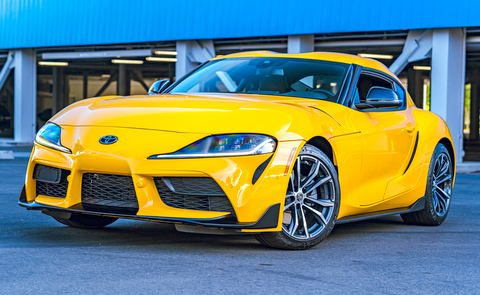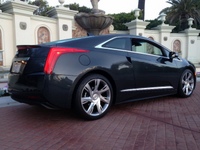Weighing the Appeal Versus the Harsher Reality
This article may contain affiliate links.
The allure of owning a sports car is almost irresistible. These cars are renowned for their high performance, elegance and edgy designs. Most people dream of owning one of these iconic and powerful speedsters that sometimes zip past us on the highways. The fascination among the global populace with sports cars is well-founded. The exterior and interior of these cars are generally customizable and exquisitely and elegantly designed. Owning or merely driving one of these cars is a social statement. When you have spent years of your life driving or owning a used Ford Focus, the lure of being in a position where you can drive a sports car is an exciting one. There are plenty of different car brands that you can invest in, but a sports car is a dream for most people! If you think that you want to own a sports car, you’ll be looking to move up from your used car you’ve had all this time.

However, owning a sports car requires significant financial outlay. These prized possessions go for multiple thousands of dollars and cost more in maintenance costs. Due to their high market value, sports cars also attract huge insurance premiums. The following are essential things you should know before shelling out your hard-earned money on a high-performance car:
Your lifestyle
If you spend most of the week huddled in a conference room or behind a computer, spend the rest of the day indoors, perhaps an expensive sports car is not your ideal possession. The same also applies to those with large families or individuals whose longest journeys are to the local grocery store.

–or what you need to fit in your car
While many sports cars can match that lifestyle, most two-seater high-performance sports cars are not ideal family vehicles. Let your lifestyle mirror your car choice. Personal tastes and preferences, such as transmission type and color, should also be considered. The last thing you need is an expensive car wasting away in the garage. Don’t be wowed by the deal. Remember, you are buying a car, not a deal.
Brand, Age and Model of the Car
The performance, aesthetics, features and durability of high-performance sports cars are not uniform. Each brand is unique and comes with different price tags. Search the best Japanese domestic cars (jdm cars) and performance analyses before settling for your desired car. You may also want to consider asking for professional help if stuck.
Budget
Owning a sports car requires committing a significant amount of money. Some of these high-end cars go for more than a million dollars. Therefore, when budgeting, be honest with yourself and ensure you understand the financial implications of the decision you are about to make. Check and confirm if you can afford your car’s insurance premiums and maintenance fees for the high-performance engine. Crosscheck if your current earnings or savings can finance a down payment or monthly premiums and the fuel demand.
Extra Costs

orphans, going out of production quickly
Every car comes with hidden and unhidden costs. And for sports cars, such costs can be very high. These machines come with customization options for a wide variety of components, which can ramp up your budget. Your car always seems to need one more dollar to perfect its appeal from fabric protection and customization to modification of interior and exteriors. No matter how enticing these extras may sound, always listen to your pocketbook first.
Whether you dream of owning a roadster or coupe, purchasing a sports car can leave a huge dent in your pocket. Therefore, before signing between the dotted lines, align your finances with your desires and reality. Ensure that you get a car that suits your needs and lifestyle.
If you want to move forward—some sports cars we’ve reviewed
Flash Drive: 2021 Toyota Supra 2.0L
Flash Drive: 2021 Ford Mustang Mach-E GT (an electric alternative)
Road Test: 2019 Chevrolet Corvette Stingray Z51 Coupe
Road Test: 2020 Toyota 86 Hakone
Road Test: 2019 Chevrolet Camaro SS Coupe
Road Test: 2020 Toyota Supra
Flash Drive: 2018 Ford Mustang GT
And an eco-option—A 1967 MGB GT EV
Disclosure:
Clean Fleet Report is loaned free test vehicles from automakers to evaluate, typically for a week at a time. Our road tests are based on this one-week drive of a new vehicle. Because of this we don’t address issues such as long-term reliability or total cost of ownership. In addition, we are often invited to manufacturer events highlighting new vehicles or technology. As part of these events we may be offered free transportation, lodging or meals. We do our best to present our unvarnished evaluations of vehicles and news irrespective of these inducements.
Our focus is on vehicles that offer the best fuel economy in their class, which leads us to emphasize electric cars, plug-in hybrids, hybrids and diesels. We also feature those efficient gas-powered vehicles that are among the top mpg vehicles in their class. In addition, we aim to offer reviews and news on advanced technology and the alternative fuel vehicle market. We welcome any feedback from vehicle owners and are dedicated to providing a forum for alternative viewpoints. Please let us know your views at publisher@cleanfleetreport.com.
